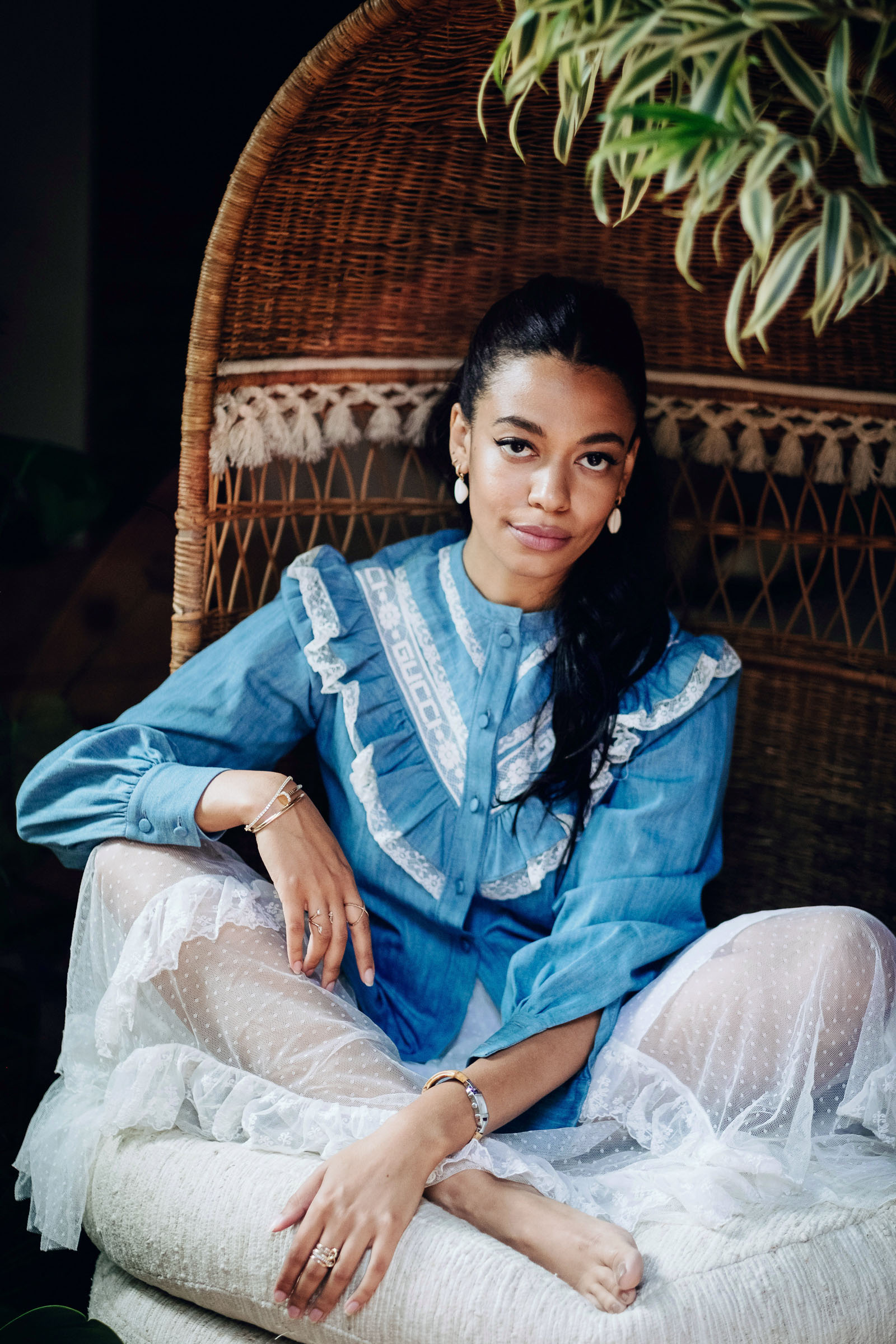When Aurora James founded her nonprofit Fifteen Percent Pledge in 2020, in the wake of the reckoning sparked by the murder of George Floyd, she knew that the push for racial justice needed to include addressing the Black-white wealth gap. As black squares flooded social media feeds and corporations vowed to do better when it came to diversity, James saw an opportunity for companies to take real action to back up their pledges. On her Instagram account, she issued a challenge to major retailers, asking them to commit to buying 15% of their products from Black-owned businesses.
“We represent 15% of the [U.S.] population and we need to represent 15% of your shelf space,” she wrote in her post, which went viral, leading to the formal creation of the organization.
This push for financial equality and economic opportunity was informed by James’ own experiences as a small-business owner; as the creator of Brother Vellies, a luxury shoes and accessories brand that she founded in 2013 to sustainably showcase the handicraft of artisans around the world, she knew all too well that connections and access to capital—and not necessarily skills, ideas, or hard work—could determine the success of a brand. Though Brother Vellies was popular and critically acclaimed (it won a coveted CFDA award in 2015), the brand still suffered from financial strain for a period because of a troublesome business loan James took out due to the limited funds. It’s a scenario she hopes can be eliminated for other entrepreneurs with education, resources, and initiatives like the Fifteen Percent Pledge.
“I was acutely aware of the fact that talent is distributed equally but opportunity and access is not,” says James, 39. “When you don’t have ‘friends and family’ to raise money from and you’re in industries that require a lot of capital to scale, you have unique challenges, especially when you haven’t had the opportunity culturally to accrue generational wealth in this country.”
In the years since the Fifteen Percent Pledge was created, 29 companies worldwide have taken the pledge, including retailers like Sephora and Nordstrom, putting more than 600 Black-owned brands on shelves and redirecting $14 billion in revenue to Black-owned businesses in the process, she says. And the organization has big plans for the future—their goal is that by 2030, Black entrepreneurs will be responsible for $1.4 trillion of wealth generation, increasing Black business representation by 14.6%. Last year, James also launched the Friends and Family Collective, an $850 million venture capital fund in partnership with private-equity firm VMG Partners, as part of an effort to support Black entrepreneurs (as of 2022, just 1% of VC went to Black founders.)
“I personally love investing in Black-owned brands and always have, but it isn’t just a nice thing that I’m doing,” she said. “I think it’s also a really smart investment.”
- The 100 Most Influential People of 2024
- How Far Trump Would Go
- Why Maternity Care Is Underpaid
- Scenes From Pro-Palestinian Encampments Across U.S. Universities
- Saving Seconds Is Better Than Hours
- Why Your Breakfast Should Start with a Vegetable
- Welcome to the Golden Age of Ryan Gosling
- Want Weekly Recs on What to Watch, Read, and More? Sign Up for Worth Your Time
